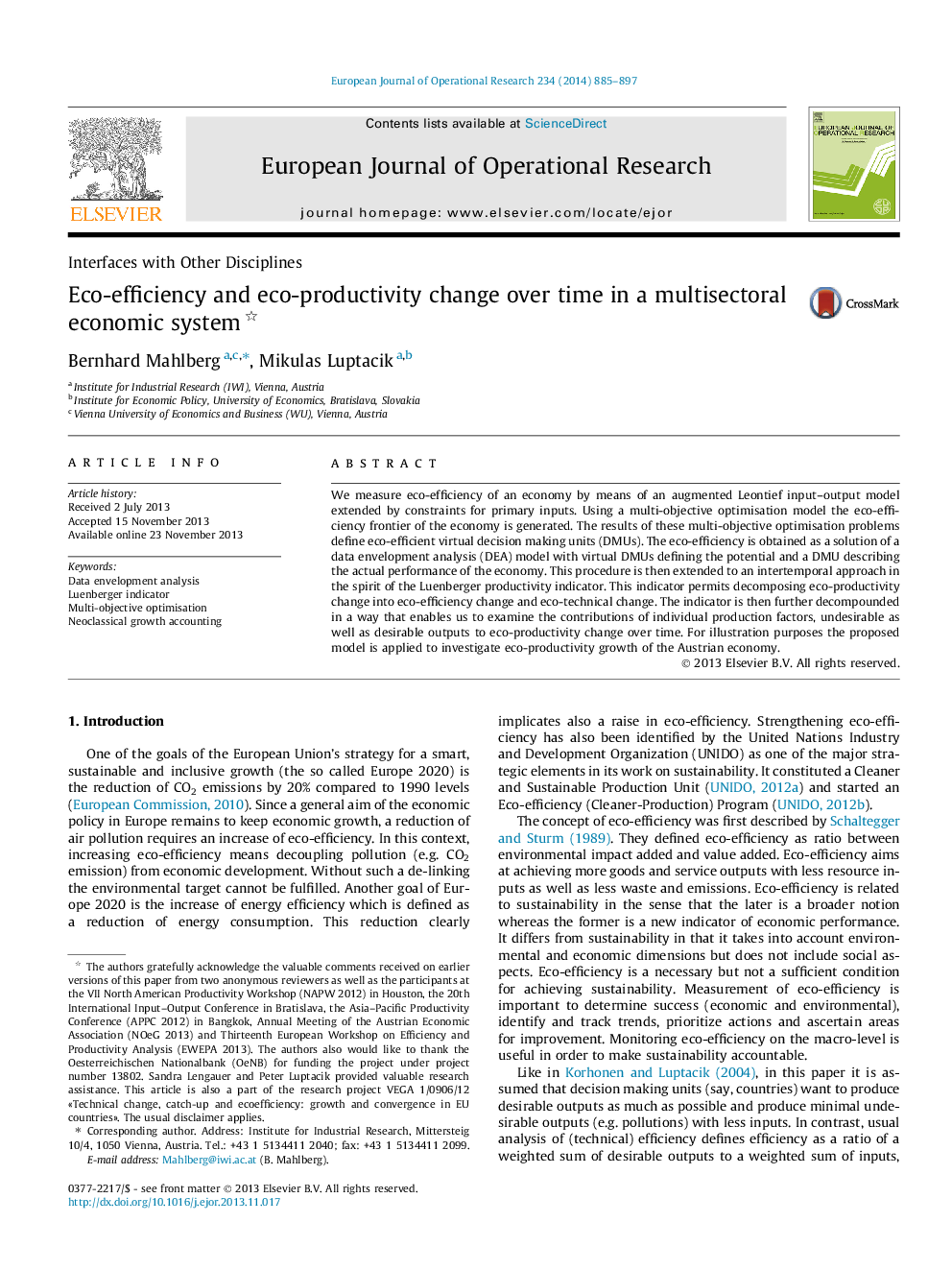| Article ID | Journal | Published Year | Pages | File Type |
|---|---|---|---|---|
| 478221 | European Journal of Operational Research | 2014 | 13 Pages |
•The paper presents an augmented Leontief input-output model extended by constraints of primary inputs.•It integrates the materials balance principle into the measurement of eco-productivity change.•Eco-efficiency is defined as the difference between the potential of an economy and its actual performance.•A Luenberger productivity indicator is proposed to estimate eco-productivity change over time.•The indicator allows examining the contributions of individual production factors and outputs to eco-productivity change.
We measure eco-efficiency of an economy by means of an augmented Leontief input–output model extended by constraints for primary inputs. Using a multi-objective optimisation model the eco-efficiency frontier of the economy is generated. The results of these multi-objective optimisation problems define eco-efficient virtual decision making units (DMUs). The eco-efficiency is obtained as a solution of a data envelopment analysis (DEA) model with virtual DMUs defining the potential and a DMU describing the actual performance of the economy. This procedure is then extended to an intertemporal approach in the spirit of the Luenberger productivity indicator. This indicator permits decomposing eco-productivity change into eco-efficiency change and eco-technical change. The indicator is then further decompounded in a way that enables us to examine the contributions of individual production factors, undesirable as well as desirable outputs to eco-productivity change over time. For illustration purposes the proposed model is applied to investigate eco-productivity growth of the Austrian economy.
